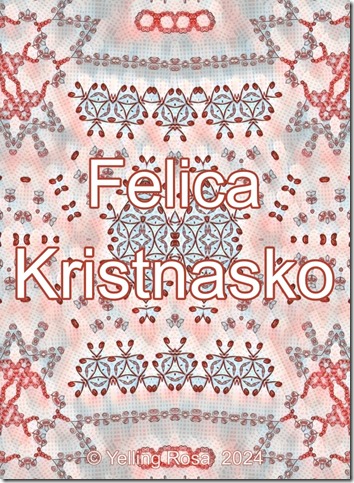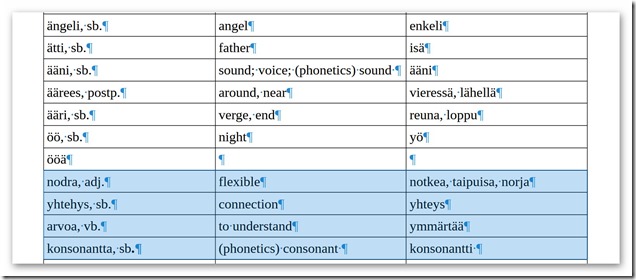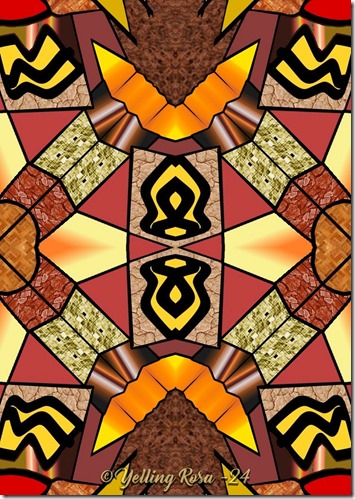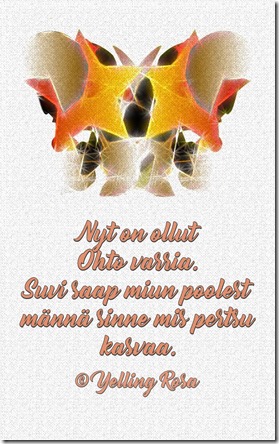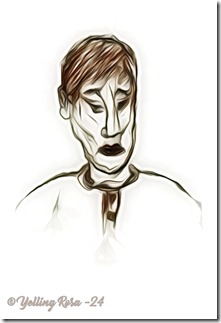I Will Stand for a Child (Yelling Rosa)
I’m singing from the bottom of my heart to make
The world a peaceful heaven.
Please, Mother Earth, release your angels from the woods
We’ve fully disregarded.
Let your supernatural creatures tell us there
Is one God equitable.
He gives every living being a spirit and
Redeems it when the time’s up.
Oh, Mother Earth, give me strength,
To stand for a child.
No matter what, the leaders
Or books say.
Please give me a sign that it is the worst of sins
to steal the life of a child,
so that I have the strength to defend God’s gift
whatever books are telling.
Oh, Mother Earth, give me strength,
To stand for a child
No matter what, the leaders
or books say.
Listen to the song by clicking the link below:
https://suno.com/song/e8694a69-c7d7-4bda-921f-81ec16df363a
About the Background of the Song
I wrote these Lyrics in the fall of 2023. I made them match the melody of ”Niin minä neitonen sinulle laulan.” At that time, not many people wanted to talk about the fate of the Palestinians. I hoped that my song will help a little with the situation. Unfortunately, nobody paid any attention to the music.
Last autumn’s version is an instrumental, and the YouTube video follows the words with a musical score. I would have loved to sing that ”I Will Stand for a Child” song, but with no teeth, the English language sounds like crap. Now I tried the AI Generator Suno. The result is surprisingly good because the machine brings out the atmosphere and message of that song surprisingly well. I hope that this version gets more attention than the instrumental version.
Yelling Rosa
PS. Please send the link to this song forward. It might open people’s eyes.
https://suno.com/song/e8694a69-c7d7-4bda-921f-81ec16df363a








